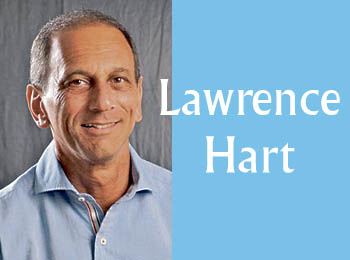To the outside observer, the run-up to the presidential nomination in the United States seems to go on forever, often exuding more bluster than substance. But inasmuch as all of the manoeuvring and one-upmanship might make for good theatre, the gravity of the issues facing America, and indeed the free world, cannot be underestimated and demands that whoever the Republicans select to take on President Barack Obama has the erudition and conviction to sculpt an alternative to current policies that clearly are not working.
It’s well recognized that domestic concerns invariably determine who wins elections and, during the current cycle, understandably even more so than in previous years, it’s the economy that will be uppermost in the minds of voters. Nonetheless, given so much political turbulence overseas, foreign policy begins to emerge as a secondary tipping point in the quest for the White House.
And within the context of foreign policy, the salient question for the Jewish community during the current primaries tends to focus mostly on “how good one or another of the Republican candidates would be for Israel.” Fortunately, with the exception of Texas congressman Ron Paul, there appears to be little to be worried about, with all of the remaining contenders strongly declaring their support for the Jewish state in ways that appeal to their constituencies.
Frontrunner Mitt Romney has stated that “the bonds between Israel and the United States are unshakable.” He has pledged that if he’s elected president, his first foreign trip will be to Israel. In contrast, Paul has stuck with his reportedly anti-Israel sentiments, contending, for example, that previous American alignment with Israel contributed to the 9/11 attacks. He is adamant that all U.S. aid to Israel should cease forthwith.
Ranking candidates on the strengths of their commitments to Israel, Jerusalem Post columnist Dovid Efune places former U.S. senator Rick Santorum at the top of the list. Santorum has described Obama’s Middle East policy as “immoral” and has expressed his fervent belief in Israel’s rights to the West Bank, even going so far as to controversially insist that “all the people who live in the West Bank are Israelis; they’re not Palestinians.”
Efune characterizes another of his more favoured candidates, Newt Gingrich, as having views that “translate into nuanced and comprehensive pro-Israel policy.” As with many of the other candidates, Gingrich embraces Jerusalem as “the undivided capital of the Jewish state”.
Texas Governor Rick Perry has promised that, among his first acts as president, he would move the U.S. embassy from Tel Aviv to Jerusalem. Former Utah governor Jon Huntsman also endorses such a move. He has described the U.S.-Israeli relationship as “a special bond rooted in history and solidified over more than five decades of partnership.”
The real race for the Republican nomination is just getting started and although Romney is the odds-on favorite, it’s too early to predict who will come away with the prize. But in terms of “who is good for Israel,” each one, aside from Paul, passes muster. The bigger question is who has the ability to unseat Obama.
